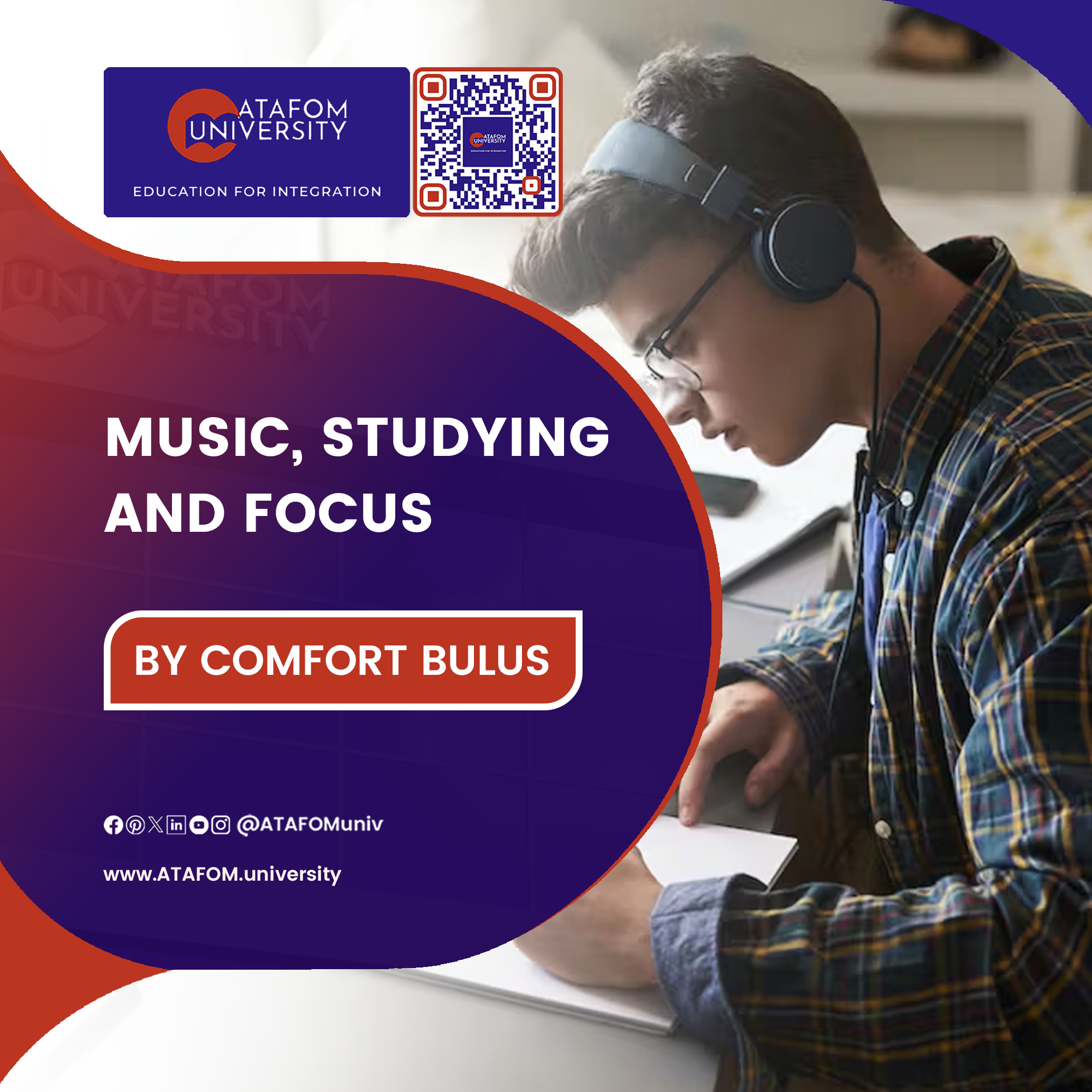By Comfort Bulus
Music can have a good impact on the body by lowering stress, alleviating test anxiety, and increasing performance in high-pressure situations. Music has been shown in studies to assist people in focusing, particularly when studying and studying. Listening to a favourite playlist or a popular song might also aid with these chores.
Music can activate both the left and right brains at the same time, boosting learning and memory. It also affects mood, blood pressure, and heart rate. Depending on the music, music can transport a person from Beta to Alpha and Theta brainwave states. To concentrate and study well, listen to music that keeps you alert without making you sway. Instead of listening to the radio or random mixes, make a playlist of study music that also functions as a timer for learning.
Different types of music can help with studying. Consider classical, spa, nature sounds, electronic music, loofi hip hop, jazz, ambient playlists, and film or game soundtracks when creating the finest study music playlist. Classical orchestral music can boost mood and productivity, whereas spa music delivers soothing ambient noises. Natural sounds such as babbling brooks, birds, wind, and rain provide excellent background noise. For people who prefer classical music, electronic music with few lyrics is appropriate. Loofi hip hop is unobtrusive and low-key, whereas jazz can promote creativity and relieve stress. Ambience playlists provide a wide range of mood-matching alternatives, ranging from mellow jazz to cosy cabin ambience. Soundtracks from movies or video games can also be a good choice for study sessions.
Consider the tempo of music, sound control, avoiding lyrics, finding commercial-free music, and selecting music that makes you feel good to boost your learning. 60-70 beats per minute music, such as Beethoven’s Fur Elise, might help children retain information and concentrate for extended periods. Avoid music with ads and DJ talk because they will distract you from your task. Choose music that makes you happy, as mood increases from listening, not background music, which improves memory.
Music has been shown to improve a student’s language, cognitive talents, and numeracy capabilities. It enhances students’ comprehension of tone and speech alignment, which is
especially important while learning a second language. Music also stimulates the brain network, resulting in improved sound identification and fine motor activities. It also improves math abilities like rhythm and pattern identification, which can result in higher test scores. Finally, music is an effective instrument for encouraging creativity and enhancing educational levels.
Hand-eye coordination, memory, teamwork, stress release, and social skills can all be improved by music. Mastering an instrument necessitates a high level of hand-eye coordination, which is essential in sports, education, and daily life. Music also improves memory by requiring the memory to be flexed by learning an instrument, the language of music, and song notes and lyrics. It promotes teamwork in both academic and recreational activities, reduces stress, and builds a sense of community. Music gives a pleasant return to face-to-face communication in today’s digital age, boosting personal growth and community.
Music can help pupils develop perseverance and a sense of accomplishment. Mastering a musical instrument takes practice and perseverance, but it is a tremendous ability that will stay with them for the rest of their lives. Music also creates a sense of accomplishment by providing a sense of satisfaction from working hard to attain something. This confidence booster is a key ability that any learner can develop. Learning a musical skill can also lead to a lifelong love of music, as it becomes highly sought after later in life. Students can bring joy and happiness to their lives by instilling a passion for music in them from a young age.
From daily assembly singing to classroom learning, music is a versatile tool that may be included in school life. It improves learning and provides a distinct academic route. Consider singing instructional songs, encouraging unity and belonging with school ideals, playing peaceful background music, and using musicals and plays for preparation and performance to incorporate music into the school day. This incorporation of music not only aids academic learning but also fosters a positive and tranquil environment.
So what are your goals for the year? Are you ready for a unique experience? At ATAFOM University International, we will teach you to think for yourself. We give you a strong foundation for a vibrant career. We will help you experience different learning tools that will enhance your learning and make it fun, not a routine. We help you build not just any future, but YOUR future. So come and let’s build your future here at ATAFOM University International.


